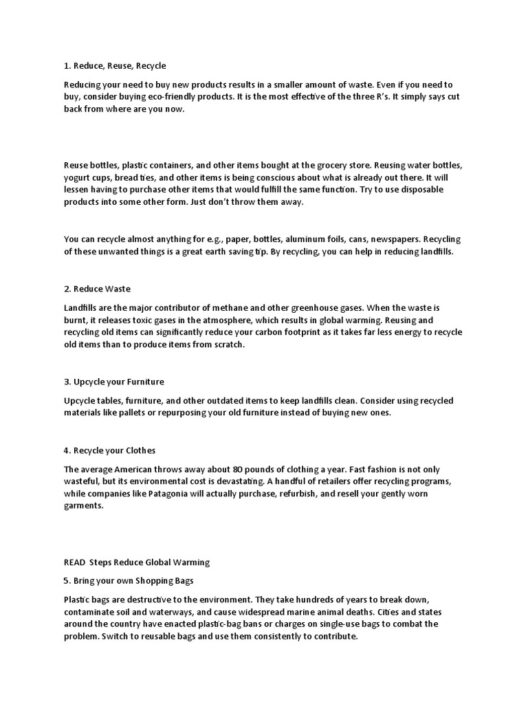Energy conservation is an essential practice that affects households and communities at multiple levels. By reducing energy consumption, not only can individuals save money, but they can also contribute to broader environmental goals, enhance the resilience of their communities, and improve overall quality of life. This discourse delves into the intricacies of energy conservation and its profound impacts, offering insight into various types of content that readers can expect regarding this pressing issue.
One immediate benefit of energy conservation for households is the notable reduction in utility bills. When families adopt energy-saving measures—such as using energy-efficient appliances, implementing proper insulation, or transitioning to LED lighting—they can significantly lower their monthly expenditures. This financial reprieve can free up funds for other essential needs, such as education, healthcare, or savings. Through careful energy management, families can experience an enhanced economic position, contributing to a sense of stability and security.
Furthermore, the practice fosters sustainable living habits that can be passed down to future generations. Instilling the values of energy conservation in children promotes environmental stewardship, encouraging them to become responsible and conscious consumers. Over time, this collective shift in mindset may accumulate, leading to widespread societal transformations that prioritize sustainability as a core value.
Beyond individual impacts, energy conservation has pronounced implications for the broader community. When a significant number of households engage in conservation practices, the collective reduction in energy demand alleviates strain on local power grids. This can lead to fewer blackouts and brownouts, fostering a more stable and reliable energy supply. Additionally, communities may experience reduced infrastructure costs as diminished energy usage leads to a reliance on fewer power plants and lower peak load demands.
The ecological ramifications of energy conservation are also substantial. Fossil fuel combustion for energy production is a leading source of greenhouse gas emissions, which contribute to climate change and environmental degradation. By conserving energy, households directly decrease the demand for electricity derived from non-renewable resources, thereby reducing their carbon footprint. This collective action helps mitigate climate change effects, subsequently enhancing air quality and public health.
Moreover, energy conservation influences the transition towards renewable energy sources. When energy consumption is minimized, the integration of renewable technologies—such as solar, wind, and geothermal—becomes more feasible and economically viable. This not only helps diversify the energy portfolio of a community, but also provides an impetus for local job creation in emerging green industries. The ripple effect of these initiatives can stimulate local economies and foster innovation.
Analyzing the role of education and awareness, it is paramount to recognize the significance of community-based programs that promote energy conservation initiatives. Neighborhood groups, local governments, and non-profits often spearhead campaigns designed to educate residents about energy-saving techniques and technologies. These programs can range from workshops and seminars to informational brochures and interactive online platforms, which collectively empower individuals to make informed decisions about energy use.
Communities can be galvanized through collaborative projects, such as community solar programs, which allow multiple households to invest in shared solar energy systems. Such initiatives not only broaden access to renewable energy but also cultivate a sense of community engagement and participation. The shared benefits of collective energy projects can lead to stronger social bonds and increased community resilience.
One cannot overlook the intrinsic social equity aspects within the dialogue on energy conservation. Low-income households often bear the brunt of high energy costs, leading to an energy poverty predicament. Implementing energy conservation measures can help alleviate this burden, making utilities more affordable and accessible. Policy interventions and programs aimed at subsidizing retrofitting efforts in economically disadvantaged neighborhoods can yield equitable benefits, ensuring a just transition toward sustainable energy practices.
On the psychological and health-related front, energy conservation initiatives can promote a better quality of life. There is ample evidence suggesting that homes designed for energy efficiency—featuring proper insulation and adequate ventilation—contribute to improved indoor air quality. This reduction in exposure to pollutants may alleviate respiratory issues and enhance overall well-being. Furthermore, individuals who adopt energy-conserving behaviors often report a sense of accomplishment and empowerment, linking their actions to positive environmental outcomes.
Lastly, the cultural and aesthetic dimensions of energy conservation cannot be overlooked. Transforming spaces to incorporate energy-efficient solutions can also enhance the visual appeal and functionality of homes and public areas. For instance, the adoption of green roofs, which improve thermal insulation while providing recreational space, illustrates how energy conservation can lead to innovative design solutions that beautify communities and enrich urban landscapes.
In conclusion, the effects of energy conservation on households and communities manifest in manifold ways, collectively advancing financial savings, environmental protection, social equity, and overall public health. As energy consumption patterns shift, society stands at a crucial juncture, where embracing energy conservation becomes imperative for creating resilient communities that thrive amidst the challenges of climate change. Through concerted efforts and dedicated engagement, powerful transformations are not only possible, but they are necessary for fostering a sustainable future.




